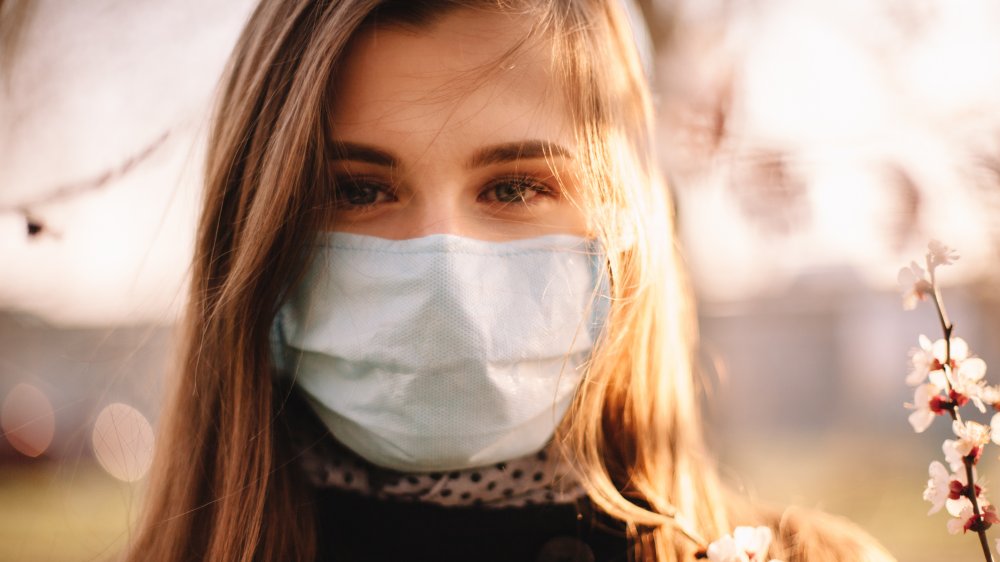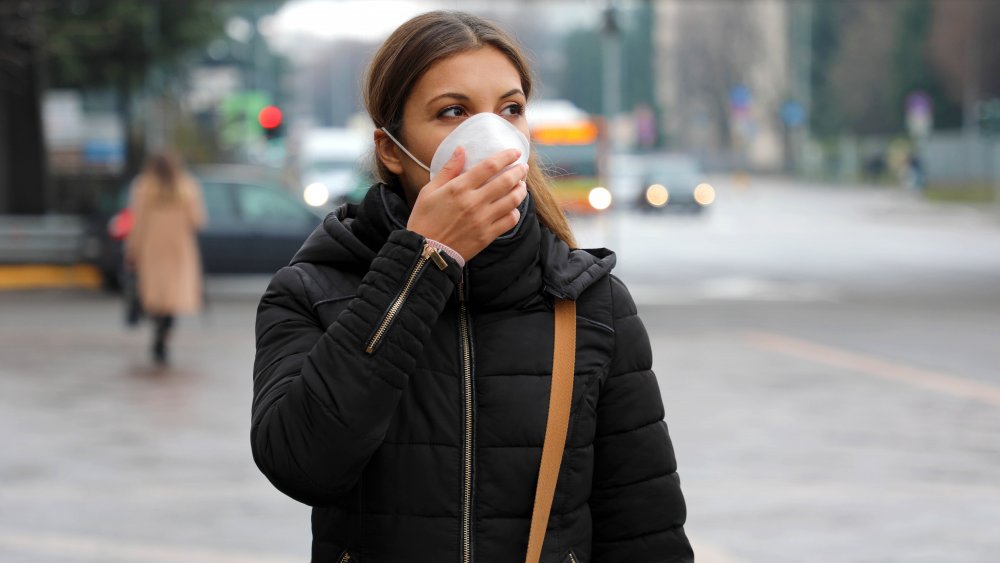Face Masks Are Helping People Manage Their Anxiety. Here's Why
We've all heard complaints about face masks: they're hot. It can feel like it's hard to breathe in them. They cause "maskne." But not everyone is looking forward to the day when masks are no longer part of our dress code. Take people who have social anxiety, which is the fear of being judged negatively by other people, according to the Anxiety and Depression Association of America. A Polish study of how wearing face masks impacted individuals with this disorder revealed that the use of these simple cloth coverings reduced their anxiety levels. "Our findings imply that face mask restrictions may not only protect against the COVID-19 but also increase the level of perceived self-protection as well as the level of social solidarity and thereby improve mental health wellbeing," noted the researchers.
These findings contrast against the experiences of many people who actually feel anxiety when they are among masked people; for more extroverted individuals who seek an emotional connection through facial expressions, not being able to share a smile can be stressful and alienating. "Some people may even feel a bit sad because they can't see others' faces and smiles," social worker Maura Grasshoff told the University of Wisconsin's medical school website. So why is mask-wearing such a different experience for people who have social anxiety?
Wearing a mask makes anxiety sufferers less self-conscious
Wearing a face mask provides a break to people who suffer from social anxiety, who often feel like all eyes are upon them, according to Vaile Wright, Ph.D., the senior director of health care innovation at the American Psychological Association. "People with social anxiety have an unhealthy, and not very rational, level of self-consciousness where they think people are paying inordinate amounts of attention to them and judging them for whatever they're doing," she told Elemental. "To have that removed has the potential to put people at ease."
That's because a face mask hides a person's emotions from other people, explained Boise State University psychology professor Matthew Genuchi. "You don't have to worry about smiling or nodding because of the mask," he said in an interview with The Arbiter. "Some of the pressure is off." This is especially true if your social anxiety leads to blushing, scowling, or other facial manifestations of your feelings. "If no one can notice these physiological experiences that are manifested on my face, I'm going to be less anxious by default," said Kevin Chapman, Ph.D., a therapist and founder of the Kentucky Center for Anxiety and Related Disorders.


